Becoming a Chemical Engineer
If you like math and science, have a curious mind, enjoy doing puzzles and flexing your problem-solving skills, then you might want to consider becoming a chemical engineer – especially if chemistry interests you. Our guest today is a chemical engineer in the pharmaceutical industry who explains careers for chemical engineers, answering “what do chemical engineers do” and the necessary education for chemical engineering.
SHORT VERSION (Full Episode below)
|
Today’s Guest
 Chemical Engineer: Joe Sullivan
Chemical Engineer: Joe Sullivan
College: Virginia Tech in Blacksburg, VA
College Major: Chemical Engineering
High School: Lake Braddock Secondary School in Burke, VA
First Job Ever: Hardware store clerk
Worst Job Ever: Inventory clerk for a few weeks as a teen
What Do Chemical Engineers Do
Joe explains that much of what chemical engineers do is solving hard problems. This can involve figuring what caused some chemicals to react a certain way when mixed together, analyzing the process that led to this and seeing what you can change to get a better result. The hours can be long and require you to be flexible since working odd hours like the night shift may be necessary when the process you’re overseeing develops problems at night. Careers for chemical engineers can be exciting since there’s always problems that need solving and you’re likely to be jumping daily from an office and desk setting to a factory to a laboratory.
Education for Chemical Engineering
In becoming a chemical engineer, you’ll want to take lots of math and science classes in high school. If those classes feel like a chore, then you probably shouldn’t consider careers for chemical engineers. When applying to college, look for a school with a large chemical engineering department. If you’re not yet sure about chemical engineering but know you’re interested in math and science careers , then you’ll probably want to look for colleges with good engineering schools and take Intro to Engineering as a freshman to get a sampling of the different engineering disciplines available. If you decide that becoming a chemical engineer is for you, then you’ll continue your education for chemical engineering with foundational classes like kinetics and thermodynamics.
FULL EPISODE (#42)
For our Audio Podcast: Careers Out There on iTunes
TRANSCRIPT OF TODAY’S INTERVIEW
Typical Day for Chemical Engineers 8:50-15:00
Careers for Chemical Engineers 15:00-17:28
Becoming a Chemical Engineer (A) 17:28-22:13
Education for Chemical Engineering 22:13-25:21
Challenges of Careers for Chemical Engineers 25:21-29:25
Becoming a Chemical Engineer (B) 29:25-30:56
Keys To Success for Chemical Engineers 30:56
Careers Out There Host Marc Luber: Hey everyone – on today’s episode of Careers Out There, we’re gonna explore careers in chemical engineering. We’ll be talking to Joe Sullivan in the Shenandoah Valley of Virginia. Joe’s a chemical engineer in the pharmaceutical industry with over 10 years of experience! On every episode of Careers Out There, we explore a career path by talking to a real professional who does that kind of work. They tell us what it’s really like and then they share all kinds of advice to help YOU decide if it’s a path YOU want to pursue. So we’re helping you find a career that fits you. I’m your host Marc Luber and I’ll be learning right along with you guys today. Joe’s got a lot of great, eye-opening stuff to tell us about chemical engineering so it’s gonna be a great show. Stick around! [theme song] OK we’re back! Joe – welcome to Careers Out There.
Chemical Engineer Joe Sullivan: Thank you. Thank you for having me here.
[WHAT IS ENGINEERING starts at: 1:03]
Host Marc Luber: Yeah. Thanks for being here! So I was telling the audience Joe in the intro that I’m gonna be learning right along with them because I know nothing at all about engineering. Really nothing! So I’m really excited you’re here. When we were talking on the phone the other day we were talking about how this is pretty common. A lot of people don’t know a lot about engineering and a lot of people kind of take it for granted when, in reality, where would we be WITHOUT engineering, right?
Joe Sullivan: Yeah, yeah that’s good! It’s absolutely right. I think a lot of people, they see products in the marketplace that they could purchase, you know, maybe from their shampoo to their, to some devices they have – like, for instance, a lot of devices they use like rechargeable batteries, lithium ion batteries and other things, those don’t just appear after the artists have conceptualized and come up with the design of these wonderful products they want to bring to market. Engineers have to make those visions become a reality by applying science and knowledge to bring those products to life. So chemical engineers specifically, when someone comes along, we might have some chemists, some doctors come along and say, for instance, in my profession in the pharmaceutical industry, this is a drug or a chemical which has certain properties within the body. And if we could just make it on a large scale, we could distribute it to all these people and improve their lives, improve their livelihood. And so this is what chemical engineers do – is they take that idea and say “yes, we have factories, we have big tanks, we have apparatus that will let us make that product on a large scale so that it can be given to many people.” So that’s what chemical engineers essentially do. And you do that by understanding the properties and the nature of the chemicals you’re actually handling. You begin to see patterns in which they behave as you take them from the laboratory in a flask up to the large scale tank. They may behave somewhat differently on the large scale. Engineers understand that and correct for that so they can make a product that’s needed. So that’s in a nutshell….
Luber: You were just talking about pharmaceuticals – and you were telling me with paint, for example, that it’s a matter of making that paint thinner or thicker, right? So that it responds differently when you’re brushing it onto the wall? Stuff like that?
Joe Sullivan: Yeah. Exactly. People take for granted paint, and think it’s just another liquid, when in reality it’s quite different from water if you think about it. Water would just dribble down the wall and it would fall off your brush. Paint is completely an engineered material so that it’s thick. When you dip your brush in, you pick it up and it’s thick. And when you push on the wall, you’re shearing the paint liquid and it spreads easily. It’s called “shear thinning behavior”. And this is a property that is specifically engineered into paint to allow you to get big globs on your brush but yet spread it thinly on the surface of the wall. And so that’s the thing – all these things are taken for granted by the general public because you don’t really get exposure to the level of engineering that went in to achieve the properties that went into achieving the properties in whatever you’re talking about.
Luber: For some reason engineering is not sexy and people don’t care. So it’s YOUR job today for our audience – you’ve gotta make it sexy! So we’ll put that pressure on you so that we could turn on a whole future batch of chemical engineers watching today. You told me a REALLY, REALLY eye-opening story the other day that helped me understand engineering a LOT. If you could take the story about the paint factory and apply what you just said to THAT. How you helped the paint company that you worked at by applying these basic foundations of chemical engineering.
Joe Sullivan: Yeah. So the big story I shared with you the other day is I worked in the paint industry for about 1 year. They, until I was hired, they had basically for I think about 100 years they’d been there, so they’d never really had a process engineer. Or, even an engineer – they had some engineers that are best described almost like they kept the place running, but they never had like a real chemical engineer who understood the nature of fluids, which is all what paint is. So when I first got there, and I got to work out in the factory, they had a particular process where they were making white paint. And in the process of making paint you grind pigment up and as you grind it more and more you get stronger and stronger paint, essentially. And they had had this tank and it would take them up to a week of adding the pigment in the tank and mixing it, agitating it with what you can almost imagine like a blender-like blade in there, like mixing it up, this blade that could be lowered or raised. They would turn it on high speed and it would get mixed up and then they would run it through a mill, which is a bunch of balls that crunch the pigment up more and they’d bring it back into the tank and they’d do it again and again. They had found that this process took several iterations of going around that loop until they got the product out that they needed for the customer in the end. So I said “oh, let me look at this”. I took a sample of paint, I took measurements of the tank, I went back to my desk, I did some calculations – well first I measured the paint and its properties, how thick it is, just some general properties, how heavy it is. Then I went back to my desk and kind of calculated out that they weren’t running it correctly at all! So I went back out, I told them to turn down the motor on the tank and they kind of looked at me like in disbelief and they said “that’s never gonna work, never in a million years.” So what I had established was that they were running the blade so fast that they had put the fluid into what’s called “turbulent flow” and when fluid is in turbulent flow, all the molecules in the fluid, and in this particular instance the paint particles we wanted to get torn apart, are ultimately just dancing around each other because you can imagine like turbulence – when you think of things being turbulent they’re plopping all over each other- but they weren’t really breaking apart. So what I did instead is put the fluid in the tank in what’s called “laminar flow” where the fluid is moving against itself like this in sheets. And in between those sheets, if you can imagine, there’s something stuck between the sheets it gets torn apart, it gets pulled in 2 different directions at once, and that would really break it up very efficiently. So I had them lower the speed so the fluid would settle out into this beautiful laminar flow and sure enough – I was able to grind all the pigment in the tank in like 28 hours! And we just had to do one pass through the mill and we were done! So they went from several days down to 28 hours – and the look on their faces was like disbelief!
Luber: You maximized their output by 7 times!
Joe Sullivan: Yes! Something close to that, yes! So it was a big thing for me and for them to see the power of understanding core principles at work and then leveraging those to get a better outcome. And again, that’s what engineers do. Is you take some time to think out “what are the things affecting what I’m trying to make” and then you optimize those things and you figure them out so as to make the thing better, cheaper, faster, stronger, whatever you’re looking for.
Luber: And then they saw the value of engineering! And that whole story helped ME see the value so I’ve gotta figure it helps the audience see the value too. So you’re making it sexy!
Joe Sullivan: I guess as sexy as paint can be, you know?!
[TYPICAL DAY FOR CHEMICAL ENGINEERS starts at: 8:50]
Luber: Exactly! For the audience that’s thinking about going down this path, they’re gonna want to know what’s a typical day if I’m working out there. So one of the things you were telling me the other day is that in a typical day someone’s working at an office at their desk and they’re also working in a lab and they’re also in a factory! And that’s pretty typical. Can you kind of explain what’s happening briefly in each of those and how that makes up your typical day?
Joe Sullivan: Yeah sure. So for a chemical engineer, and also like we mentioned, is this was early in my career, especially being in a very strong support position for a factory environment. Typically the day would start off with coming in, hearing what’s happened over night because we’d run 24/7, carrying over the problems from yesterday that we might have encountered. This could be anything from a reaction not going the way we’d planned to a pipe bursting because of freezing to any sorts of issues. Sometimes it could be the simplest issue like a valve not working that then all of a sudden causes all these other cascade of issues. So I need to understand those. Probably in the same trip we might have taken some samples. I may bring those to our testing laboratories that would normally run testing for us. Those samples may require special testing we normally don’t do. And I’d bring those back to my chemists that work in my department with me as well. They’re kind of like – they’re able to run tests that we normally don’t do, come up with new ideas. And then we might all sit down in a meeting like by Noon or something or 1:00 and talk about the issue and pool our data. Everyone comes and I might have gone back to my desk while the chemists are running tests and looked up process data like basically traces of temperatures and pressures and volumes and other things that have occurred out there, like see what that data is. We all come together, we reach a resolution on what might or might not be wrong and then we have an action plan basically to go forward. So I may go back out now, have to implement what are essentially change controls – like we have control processes, and you’re gonna want to go out and you’re gonna want to say “I’m deliberately gonna change the process so as to fix it”. So you might have to do some paperwork, a little bit of paperwork to implement that change but then you get to actually see your change happen, take some more data, come back to the laboratory again, maybe come back to your desk and look at some process data and basically see if your fix worked. And hopefully most of the time you’ve made the right decision. Sometimes you might have a great idea and it didn’t work out. It wasn’t the root cause. So a lot of what we do is we’re always seeking out what we like to call “root cause”. So sometimes you think you found the problem but it’s really just superficially the problem and there’s something else going on that you don’t know yet. It might be that not enough water got in that tank that day. And you might go out and say “oh, we just need to turn the water up” but then you turn the water up and you notice that even THEN you didn’t get enough flow and then you go back and say “Well maybe there’s a plug in the line”. I guess that’s a very simple example but they’re often much more complex.
Luber: No, that’s good – that helps!
Joe Sullivan: You try to work through some issues and as the chemical engineer, you’re all through those places at any given moment so you don’t have a….
Luber: So if you’re running around juggling 3 different environments, it’s hard to get bored! You’re not stuck at a desk all day or you’re not just stuck at any 1 thing all day which makes for an exciting job.
Joe Sullivan: It’s great. I mean you have all these people who have these issues from sitting at their desks all day or whatever. You’re definitely gonna be getting some exercise and you’re getting out and getting some fresh air, you’re getting out and meeting on any one day tens of people so there’s a lot of interaction every day with people.
Luber: I want to run with that and talk about that for a second because there’s a lot of interaction with people. It sounds like in everything you’re describing in a typical day, there’s a lot of putting your head together with other people’s heads. So there’s a lot of teamwork involved. So I want to know who are these other major team players that you’re dealing with? They’re not all chemical engineers. So who are these other players?
Joe Sullivan: Yeah. You actually deal with when you’re a chemical engineer, you’re gonna have peers but they’re gonna each be working on their own processes. So I would be working typically with what we call “operators” or “chemical operators”. So they’re actually out there running the machinery. You’re gonna be working with safety and environmental, so like industrial hygienists. You’re gonna be working with the business end like finance, purchasing. You’re gonna be working with your raw material people – the people that bring the materials on site – you’re gonna need to integrate with them and figure out if the wrong shipment arrived –sometimes that tends to be the source of the problem. You’re supposed to get this product in and this OTHER product came in and you didn’t know it. You might also be working with chemists. I know right now I’m starting a new project where I’m in fermentation. I’m working with biologists. You know you could be working with people who handle all of our paperwork and essentially librarians almost, and then administrative personnel as well. And mechanics. There’s SO many people I work with. So many different types of people. It’s really hard to almost count them all out! Because on a chemical site, there are so many roles because it’s so complex. It’s just like a city. You can’t have someone control all of the city. Rather it’s like a big network of people that all need to find ways in which you interact that creates productive work together.
Luber: So everyone’s like an alderman instead of a mayor.
Joe Sullivan: Yes! I guess so, yeah!
[CAREERS FOR CHEMICAL ENGINEERS starts at: 15:00]
Luber: To run with your city analogy. So you were telling me that there’s a lot of different things you could do career wise. A lot of different paths you could take career wise as a chemical engineer. Can you tell us what some of those are?
Joe Sullivan: Yeah! Most chemical engineers you’re gonna start your career off 1 or 2 ways: in the laboratory in the design realm where that might be like working in the lab every day essentially to test new equipment or to test whether the equipment could be used for a certain process or to actually sit down at your computer and like design the factory. OR you’re gonna be starting your career like I described out in the factory every morning, basically problem-solving. So that’s how most young engineers start actually. Other things you might do in that role is like validation work where you’re testing tanks and making sure they perform to specifications, things like this. So as you get older then, your options open up a little bit. Usually to the standpoint of you can continue to go down those roles, you can possibly become like a managerial position where you’re managing like a number of engineers or managing like an entire process. So you might be managing like an entire factory or you might be managing a team of engineers that are helping several factories. There’s different roles – it varies. Then after that, after you have gone a little farther in your career, you may become a consultant, you may decide that you have developed so many skills over your career that you now can go out and help other people with processes like yours at other companies. Or you could become a plant manager: someone who is basically managing the ENTIRE operations of the plant. The reason why engineers are well-suited to those positions is that we, as I mentioned before, we’re often in the center of working with all those different types of people. So you get a really good exposure to all the aspects of running a plant. Like all the minutiae that goes on. So you’re often well-suited then to become a plant manager because you just have that base.
Luber: Right! That makes perfect sense. Yeah. And the consultant – they could even be expert witnesses on trials too I bet. That’s probably a big path.
Joe Sullivan: Yeah absolutely.
[BECOMING A CHEMICAL ENGINEER (A) starts at: 17:28]
Luber: Well who would you say then should pursue something like this? What are the right – we can combine skill sets, personality characteristics and interests. Who do you think should pursue this?
Joe Sullivan: People that find themselves interested in math and science. Specifically for chemical engineering they should have some interest in chemistry. For me that always manifested itself – growing up I would always be mixing things together as a very young child. And as I grew older, I began to question whether if I mixed similar things together like that weren’t exactly the same as those like how would the end thing be different. How would the end product be different. And actually one of my very first things – and I don’t recommend this – but we used to take apart fireworks when I was younger. And we’d make our own from the fireworks stand.
Luber: Don’t do this everybody! It’s dangerous! We want to warn everybody!
Joe Sullivan: Right, don’t try this at home.
Luber: Right. Don’t try it at home.
Joe Sullivan: But what we would do is we’d take the gunpowder on sheets of paper and we’d take a file to pennies and nickels and stuff and you start learning about all these things. So I went and filed it in to the gunpowder and it would change the color of the gunpowder. So I always had a natural curiosity about what would happen if I add this or mix this – what would the new result be? That started leading me in the direction of chemistry. And then when I got into chemistry I said “you know what – I don’t know that I like so much the chemistry field, which is specifically like mixing the chemicals every day in the lab. I really wanted, and I think this comes from my background of always inventing stuff as a child, I wanted to make something of my knowledge. So I’m trying to give you an example of myself to give you an idea of the kind of personality – would be someone that’s curious about things- like how they work and stuff – but someone who also wants to take that knowledge and turn it into something new – or something better. So the gunpowder example – that was our attempt to make it better. Because what we found out is when you’d take those all apart, gunpowder was mostly all yellow and we were like “That’s boring”. So we were trying to make it better and that’s like engineering! The other thing I mentioned in there several times – the word that kept coming up – is “curiosity”. And that’s crucial. If you’re out in the factory and you walk past this funny nose that’s going “whirr whirr whirr” and normally it just goes “whirr”, you want to be the person that goes “huh I’d better check that out”. Or “even though I’m a little late for a meeting, I’m gonna go check that out because that really sounds peculiar.” That’s what most engineers are like. Their curiosity helps drive them to solutions. Sometimes solutions to problems no one even knew existed! And that’s the key – when you get to be a REALLY good engineer, you get to be better and better at your predictive abilities and less and less at your fire fighting. So you look at a situation and you say “oh, I’ve seen this situation several times, I think I know what might happen.” And then you’d then try to avoid that. So these are attributes….
Luber: OK. So the curious mind, the problem solver, and the math and science lover. That’s it.
Joe Sullivan: Yup.
Luber: Cool! So what would you say then is the most rewarding part of the whole career? What would that be?
Joe Sullivan: I think the most rewarding part is solving particularly hard problems that there is no solution to. So often times being the first one to discover the issue…I love puzzles – and especially puzzles – I often take the instructions and I crumble them up and throw them in the trash can which someone might think is crazy – but I don’t want to ever know the solution. I want to get to it on my own. Being an engineer is like that often. Almost every day. You’re presented with issues every day there’s not an answer to. You have to go and figure it out. So for me, that’s the most rewarding thing of all of being an engineer. There’s not a written script by which you should follow every day. It’s not entirely up to you what you do every day, but it’s entirely up to you how you attack the problems that are presented to you every day.
[EDUCATION FOR CHEMICAL ENGINEERING starts at: 22:13]
Luber: That makes sense! If you’re a curious mind who likes problem solving, then solving the hard problems has got to be a rewarding part of the job! So that makes perfect sense it would work like that. What about education then? What should people – I’m assuming if someone’s in high school they should be taking as many math and science classes as possible, right?
Joe Sullivan: Yes.
Luber: And then college – I assume if you know that you’re interested in engineering in high school, then you should be looking for the colleges with the best engineering programs. But some people don’t figure out until they’re already AT college that they want to pursue that path. So let’s say you haven’t already hunted down the best engineering college – you just chose a university and you’ve started school and you kind of are figuring out in college “I want to do what Joe does”. What should they do at that point? What should they be studying?
Joe Sullivan: Just in general, I want to say that if you don’t take – or some people don’t have an opportunity to take a lot of advanced math and science in high school. I’d like to say that that does NOT preclude you in any way from pursuing a chemical engineering or an engineering degree at all. The only thing I will say is that if those ARE available at your high school and you find yourself NOT taking those, then that MAY be an indication that this is NOT the field for you. This is not something that you’re interested in. So when you get into college, as far as picking a college, you said a “good” college. I’m just gonna say I think a “good” college would be a college that has a large department of the discipline you’re thinking about pursuing. And you can go look this information up on line. So you’re gonna find out that certain schools have larger departments in like chemical engineering, or have a larger department in like, for instance, electrical engineering….
Luber: That leads to another question. Sorry to interrupt you – but do you have to know when you’re starting which kind of engineer you want to be? Or can you start off by taking general engineering classes and then kind of select which focus you want?
Joe Sullivan: No. So if you choose you want to do engineering as a college freshman, you have the option if you want to take Intro to Engineering in your freshman year. When you take that course you’ll be given a sampling of the different engineering disciplines that are available: chemical engineering, electrical, mechanical or some other types. At the end of that class you typically will make a choice about the engineering discipline you want to go into. And then your class schedule will be chosen to fulfill the requirements of that discipline. So for chemical engineering, you’ll be taking kinetics and thermodynamics and all those things like that. After that first entry class, after the first entry classes, you still may be available to switch disciplines. So you may have taken some intro classes for chemical engineering – and they’re not totally worthless for electrical engineering. You can switch. That’s usually in your sophomore year. People will make that choice, usually in the first semester of their sophomore year. After that you pretty much would probably stick with the discipline you’ve chosen because you’re getting into more and more advanced: 200, 300 and 400-level classes that are VERY specific to your discipline.
Luber: Got it.
Joe Sullivan: Does that make sense?
[CHALLENGES OF CAREERS FOR CHEMICAL ENGINEERS starts at: 25:21]
Luber: Yeah! Definitely. So we’ve talked now about all the good stuff and now we’ve gotten people to the point where they’re in school. Let’s talk about the dark side. The ugly stuff. What’s the biggest challenge of being a chemical engineer? What’s the hardest thing?
Joe Sullivan: Yeah. So most of the processes that you’ll support as a chemical engineer are gonna run 24/7, around the clock all year long. Often times being down can mean tens of thousands to hundreds of thousands of dollars an hour sometimes, depending on the value of the product that’s going through the train. And so the downside of being a chemical engineer is that you make a commitment, essentially, when you join a company that you are gonna make your skills available to that company for those processes. And so I’ve had, for me personally, a Thanksgiving dinner interrupted where I had to come up to work to basically get a process running that had gone down during Thanksgiving. I’ve also had a week or 2 where I didn’t see my family except sleeping. You know I was working VERY long hours on a VERY difficult problem. Now that was very short term. Early in your career you might find yourself working a lot of shift work, which means a lot of sleep interruption from the way your natural sleep cycle might be used to.
Luber: That would be like working midnight til sunrise? That kind of a thing?
Joe Sullivan: Yeah, that kind of a thing, yeah. Where you work extended hours would be like on a very specific problem that is arising. When you’re working off – like when I say “shift” – it would be like your shift might be 8:00 at night to 6:00 in the morning or something. And then you might work that for 3 or 4 days and be off – you still get off days but I’m just saying you will be off from the rest of society! Some people like it. I think of that as a downside. Especially if you have a family – that can be a downside because it could just be difficult to see your family because they’re not gonna be on that odd schedule.
Luber: Right. So that’s like the early career phase where you’re building things up, you might have to pay your dues that way.
Joe Sullivan: Yeah but that’s never gonna go away even later on in your career because there’s always gonna be a need for you and when you work on things that run around the clock all year long, there’s gonna always be, even later in your career, there’s gonna be a time when you have to come in at an odd time to either fix something or to see something that only occurs at night. If you were to go into engineering and that was to be your life every day, you’re probably not at the right company. Those types of spans are usually short-term and then you can get back into more of a regular schedule.
Luber: What about the thing that would weed people out? It sounds like – I always like to say “what is that thing where if you can’t handle this you shouldn’t go down this path” – it sounds like from what you were saying about the grueling classes that you have to take to get to the point where you’re actually a chemical engineer – it sounds like THAT would really weed people out and that if you don’t enjoy those classes and you can’t get through those classes then you’ll be weeded out before you even are a chemical engineer. Is that right?
Joe Sullivan: Yeah. I’ll just give you an idea – like when I was in school, me and my friends, we would take the classes and they were TOUGH. But when we’d get done with that tough assignment, we’d all have the same kind of response like “oh – that’s really cool!” You know? “That’s so cool that we solved this really tough problem using this really advanced math!” But if you find yourself looking at such situations with dismay, then engineering is not right for you at all. You know what I’m saying?
Luber: That paints a perfect picture! I wouldn’t last 5 seconds in any of those classes. Not because I don’t think it’s cool but because I wouldn’t understand any of it – everything would go a mile over my head – so I know I’s not for me! Finding employment – let’s talk about that. Getting a job after school – you were saying that traditionally there’ve been lots of jobs out there for people coming out of school but right now a lot of jobs are shifting overseas in this space and now there’s a lot of opportunities overseas in places like China and India? Is that what’s happening with your field?
Joe Sullivan: Yeah. I have a number of colleagues and friends from college who are now working in China, working in India and often times the role that they’re fulfilling, it’s not like they’re going to India to work in a factory under these extreme conditions or something. They’re actually very nice factories in these countries that are being built – a very equivalent to our factories. They are basically acting the role as like a technical advisor in those companies. So they’re going over there and they’re saying “I’m an expert in how to make products like this” and they’ve been hired and they lend that expertise to those companies so as to optimize their processes. Some of those companies – actually in all the cases of my friends – they are all American companies that have locations overseas. Actually I also have friends that are in Thailand, Puerto Rico, Ireland – so it’s not only China and India. I don’ think a lot of people realize that a lot of manufacturing is also going into other countries like those ones I just mentioned.
[BECOMING A CHEMICAL ENGINEER (B) starts at: 29:25]
Luber: Huh. OK, so then if people are interested in international opportunities and working overseas, this could be a path that could help open up those opportunities. If they want to stay here in the States and they’re looking for your traditional job here in chemical engineering would you say internships during school are an important thing for them to try and look for while in college?
Joe Sullivan: Absolutely. I think just seeing the candidates come through here – the ones that have expertise from doing summer internships or what are called co-ops, which is where you leave school for an entire semester and you work at a company – those are extremely valuable. That’s the thing – there’s that old adage that you don’t have enough experience to be hired…… but you can’t be hired unless you have experience – it’s like a Catch 22. Co-ops and internships are the perfect opportunity because companies will scoop you right up, you can come and work usually on these really defined, narrow special projects which are great because you can achieve a certain success and just a few months you’re there, you’re given a very tight goal and you can get this very nice success and something to claim later in interviews. You can say if you’re interviewing “I was on this co-op and we developed this technology”, you know. It’s a nice sharing story to have in your interviews to show people that you’ve really been in the trenches and it gives you that experience.
[KEYS TO SUCCESS FOR CHEMICAL ENGINEERS starts at: 30:56]
Luber: Yup. It gives you an edge up, a leg up on other people, it can help get that first job. That’s great. So everybody should do that – you should look into those kinds of opportunities – whether it’s co-op if your school does that or internships. What about keys to success? I always like to have everyone close us out with this. Take all of your years of experience and share some advice with people who are breaking into the career path of being a chemical engineer and help them to kick butt. What are the key things you would tell them?
Joe Sullivan: The key things I would tell a new chemical engineer: the first one is to listen to the people who actually work on your process. So go out, interact with those people on a day-to-day basis, make them you friends. They, more than anyone else, no matter what anyone else says, they may more than anyone else know the process backwards and forwards what the issues are. They’re gonna help you solve problems day in and day out. So that’s number 1. I think that – and if your company offers the opportunity, I didn’t have this opportunity when I started here at this company but at the paint company I got to work the floor for 6 weeks. So I actually got to become an operator. If that’s a possibility wherever you go as a chemical engineer to work, ask for it. Ask to do that.
Luber: Because standing in their shoes lets you totally relate once you are on the chemical engineering side so you can understand where they’re at?
Joe Sullivan: Oh yeah! And not only do they see you as a peer and as an equal, in which case then they’re more likely to share issues with you freely and share candid assessments of your great ideas that you’re gonna come out with. But it also gives you insight into things you just can’t get sitting at a desk or going out there only for an hour or 2 here and there. When you’re out there all day long, you get to see that nitty gritty – and I have to say, in the paint plant, at least 75% of my really good ideas came from that 6 weeks I spent out there. I had this list, this running list. So that’s another suggestion. You know – don’t be afraid to ask stupid questions. I get that young engineers, I think they want to look like they know everything. Trust me – no one’s looking for that actually at all, number 1. And I still don’t look like I know everything. I’ll tell you what – looking like you know everything actually shuts people down. It makes them feel like not sharing with you. It’s much better to play the role of asking silly questions and supposedly stupid questions because you get to the core answers first and you make people comfortable about themselves and they’re more likely to share. So those are some advice that people don’t hear all the time.
Luber: Right. That’s great. That’s really – I think that’s really helpful advice. And I hope it helps all you guys watching! Please leave your feedback, your questions and your comments in the comments section below the video there on Careers Out There dot com. Joe – thanks so much for taking the time and sharing all of your insights with us today.
Joe Sullivan: It’s been a lot of fun. I wish everyone the best out there who’s considering being a chemical engineer.
Luber: That’s awesome. You guys could find Joe on Twitter which is where I found him! Joe – tell everyone your Twitter address.
Joe Sullivan: I’m on Twitter at Twitter.com/itche.
Luber: Excellent. You guys, find him there on Twitter. I’ll put that here up on the screen. You can find episodes of Careers Out There on iTunes, YouTube and BlipTV and of course at Careers Out There dot com. Thanks again for watching everybody. I’m Marc Lube and look forward to seeing you guys again soon. Take care.
©2011 Careers Out There
POSTS YOU MIGHT LIKE
Environmental Health Careers
How Do I Find the Right Career?
Job Interviewing Tips



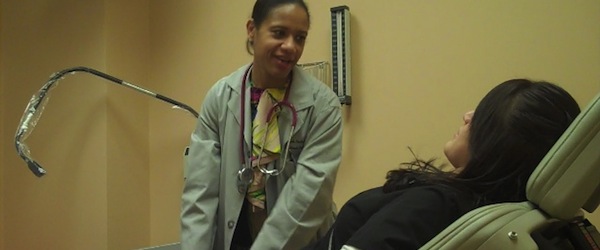
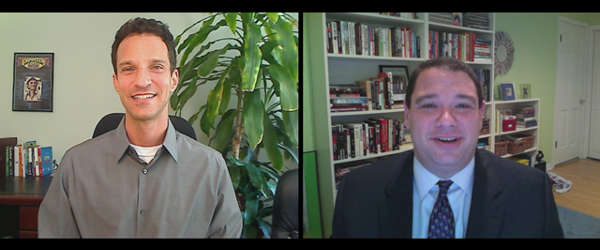
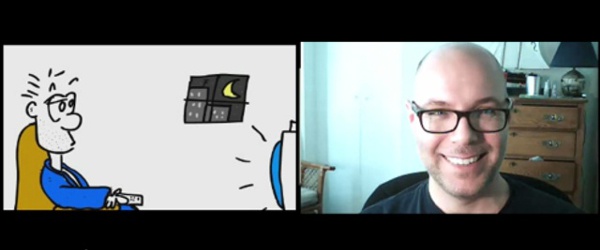
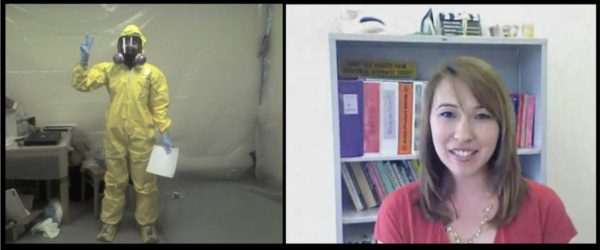
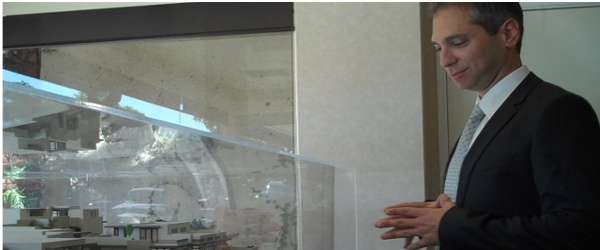

I am Jyotsna Vadali from India.
I finished my Bachelors in Chemical Engineering this year.
Mark Luber you are doing a great job.
The videos that you posted about Chemical Engineering and Biomedical Engineering are very informative and in so many ways they have made things clear for me.
I liked the way Joe explained about the laminar and turbulent flow of fluids.
Well I have a question for you.
1. I am planning to pursue masters in Chemical/biomedical engineering. What are the minimum pre-requisites for getting accepted by these programs in the US?
Thanks for the kind words @disqus_cmF6m5VhXQ:disqus! I appreciate the feedback and am glad we were able to help you. I’ll bet an undergraduate degree in an engineering discipline would be required, but I’m afraid I don’t have specific information for you on masters degree pre-requisites. I need to point you to Google, where I’m sure you’ll be able to find the specific information you’re looking for. Best of luck!
my name is jabulani and im currently studying chemical technology however im looking forward to studying chemical engineering when i complete my programme i would like to know do you know of any one who made that transition .if you do i need to know what courses should i take now in order to be fully prepared for engineering.
Hi @5271a3c3cb535b146af3264500c0b6e3:disqus – I’d suggest contacting Joe directly at his Twitter link above to ask about the transition from chemical technology to chemical engineering. He may be able to advise you. Good luck.
What is the oldest age for studying chemical engineering?